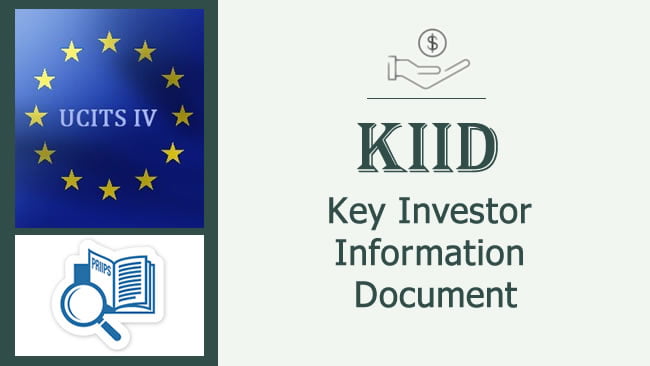Financial Translation for Investment and Corporate Business
Retail Investors – KIIDS and KIDS
There have been significant financial regulations instituted by the European Commission over the past decade to improve transparency and communication for retail investors. This is delivered through a Key Investor Information Document (“KIID”). Originally released in July 2011 under the ‘Undertakings for Collective Investment in Transferable Securities, (“UCITS”)’ as the UCITS IV directive, it was a significant reform to the UCITS regulatory regime.
A KIID must be created for every share class and sub-fund and is limited to 2 pages of plain English. There is a legal requirement for translation into the main language of any country within the European Economic Area (“EEA”) into which the fund or sub-fund is offered to retail investors i.e., individual investors as opposed to financial institutions or investment companies. For every creation of a new KIID, or an annual update or amendment, language services companies must manage the content to provide a consistent and accurate translation.

On January 1. 2018, the ‘Packaged Retail Investment and Insurance Products’ (“PRIIPS”) regulation came into effect. This comes with a 3-page Key Information Document (“KID”) with the purpose of further enhancing investor protection for retail clients. UCITS products have previously been exempt from the requirements of the PRIIPS regulation, producing their own KIIDs in line with UCITS regulations. However, this exemption is soon to end. Effective July 1, 2022, all investment and management companies offering products into the EEA are required to produce PRIIPS KIDS for all their UCITS products. It is rumoured that this introduction may be delayed until December 31, 2022.
Financial Regulation and Pressure on LSPs
Either way, the pressure on Language Service Providers (“LSPs”) will only increase with the additional information disclosure required to comply with PRIIPS regulation. This means, not only more content for translation but also new templates, the management of language expansion, and the effective use of translation memories to maintain consistency of content. It is however much more than this! With much of the content for each KID remaining static year-to-year, it is the ability to manage the flow of new content, between all participants in the translation process that delivers a well-executed project.
Corporate Mergers and Acquisitions and Management of Content
Moving away from retail investor documentation to the corporate mergers and acquisitions arena, also involves significant financial and corporate due diligence translation. Offer documentation must comply with the regulatory requirements of the target company’s country of incorporation or where they may have significant international holdings and may include the requirement for translation. In addition, translating material into the language of the acquiror, during the due diligence process, is essential to getting a real understanding of the nature and risks associated with the business.
Having the ability to connect a translation management system with the client’s Content Management System (CMS) creates a seamless flow of content between the client and LSP. In this way, the transfer of content is facilitated in a secure environment. However, the ability to create automated workflows incorporating translation memories (TM), machine translation (MT), linguists, editors, and in-country reviewers into the process is where having control over the development of your technology and tools is an advantage. Supported by in-house developers, file engineers, and desktop publishing experts, LSPs need to manage all aspects of content receipt and delivery, not just the translation.
In Conclusion
Although the regulatory requirements around financial documentation continue to change; there is still a significant requirement for translation. The ability of LSPs to deliver a project in a compressed timeframe is even more important. Financial transactions can involve multiple advisors and a variety of legal, regulatory, and financial pressures that all contribute to an intense process. An incorrect translation can do more than cause embarrassment to the client, it can also come with financial penalties and reputational damage. LSPs that develop, own, and manage their technology stack tend to have protocols in place to manage a complex and challenging process.

